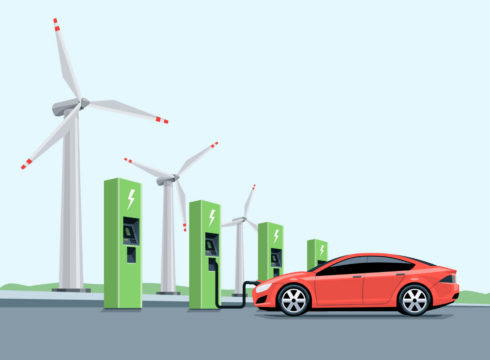Tata Motors has announced plans to launch 500 public fast-charging stations for EVs by 2021
The stations set to be located in metros such as Mumbai, Delhi, Pune, Bengaluru, and Hyderabad
Tata Motors had announced in July that it would four electric four-wheelers in the next two years
Inc42 Daily Brief
Stay Ahead With Daily News & Analysis on India’s Tech & Startup Economy
Even as the government continues to urge the Indian automobile industry towards electric mobility, one of the biggest questions is around the infrastructure, particularly from a charging point of view. With millions of electric vehicles hitting the road in the next few years, the government and private players are looking to address the charging infrastructure gap through public EV charging stations and other standardisation. While the government is set to release a charging infrastructure policy framework, Tata Motors has announced plans to launch 500 public EV charging stations with fast-charging facility by 2021, along with Tata Power.
The EV charging stations would be set up in major cities to begin with and the first 300 are set to be located in metros such as Mumbai, Delhi, Pune, Bengaluru, and Hyderabad. While the locations for the remaining charging stations have not been announced, it looks like Tata Motors is targetting the urban sector as that’s where electric vehicles are a greater need, and charging stations would come at a premium. Tata Motors had announced in July that it would four electric four-wheelers in the next two years, with a range of over 200 Km on a single charge.
Speaking to ET, which reported on the announcement, Shailesh Chandra, the president of Tata Motors’ electric business said that the EV market is held back by barriers such as price, range anxiety and (lack of) charging infrastructure, which the EV charging stations aim to tackle. “Without an ecosystem in place, you can’t see demand in the market,” he said and added, “From a consumer perspective… they will know that something has started getting in motion now and they can think of buying electric cars.”
With the reduction in GST on electric vehicles to 5%, the government is also looking at making EVs more affordable. At the Union Budget 2019, finance minister Nirmala Sitharaman also announced tax exemption on automobile loans for purchasing EVs. The next step is expected to be a clear framework around public and private EV charging stations.
In response to these rate cuts, electric scooter maker Ather Energy and Hyundai Motors have announced price drops to pass on the benefits of reduced tax to its customers. While Hyundai said that it would reduce the price of its newly launched Kona Electric by INR 1.2 L – 1.35 L, it is yet to arrive at a price point.
Note: We at Inc42 take our ethics very seriously. More information about it can be found here.


